OregonCSTA
The Oregon Computer Science Teachers Association (OregonCSTA) is an organization of teachers training teachers in Oregon since 1984. Our main focus is professional development in the areas of computer science and engineering education for K-12 educators and extended program volunteers.
Subscribe to our newsletter for upcoming announcements and events!
Spring Conference 2025
Join us for a day of learning, collaboration, and innovation in computer science education!
(Note: Consider registering your students for participation in the High School Programming Contest on the same day!)
Date: Saturday April 12th, 2025
Location: George Fox University
College of Engineering
414 N. Meridian St.
Newberg, OR 97132
Time: 9:30 AM – 3:00 PM, morning snacks and drinks and lunch provided. All sessions are one hour unless otherwise specified.
Cost: $10 to register. A $10 gift card will be given out to attendees on the day of the event. No shows will NOT be refunded.
Conference Sessions: Link to session instructors and session grade levels
9:30a Welcome Coffee
9:40a Introductions & Business
9:45a Morning Keynote, Brent Wilson
Session 1 (pick one)
10:00-11:00a
Everything Python – Less Confident- 2 hours AM, Don Kirkwood
A beginner-friendly introduction to Python, perfect for educators considering teaching coding. Participants will receive complete lesson plans for a semester’s worth of content.
K-5 High-Tech STEM Curriculum, Brenda Selby & Holly Phillips
Explore how the foundations of STEM learning, including technology applications, can be commonly practiced in a comprehensive K-5 curriculum. This session will demonstrate how to implement STEM in both dedicated specials classes and integrated general education classrooms, ideally developing students prepared for further STEM learning in middle and high school.
All Things HS CS Curriculum and “CS Pathways”, Jason Galbraith & Cady Geer
Strategies to strengthen CTE pathways, including structuring new classes and incorporating work-based learning, with examples from local schools.
Exploring Scratch & AI with Face Sensing, Maren Vernon
Dive into the intersection of Scratch and AI through hands-on activities involving face detection and generative AI tools to create interactive projects, games, and stories.
Session 2 (pick one)
11:00-12:00p
Everything Python – Less Confident- 2 hours AM (continued), Don Kirkwood
A beginner-friendly introduction to Python, perfect for educators considering teaching coding. Participants will receive complete lesson plans for a semester’s worth of content.
Hands-On AI, Jacob Niebergall
Discover the latest and most effective ways to harness AI for specific applications. This session will guide educators on how to work smarter, not harder, by using AI tools tailored to classroom needs.
Code.org Curriculum and Resources, Lindsay Pierce
An overview of all curriculum options from Code.org, highlighting how its resources can be integrated at all grade levels, including special education. This session covers K-12 options, including AP.
Make Some Noise: Exploring Sounds and Music in Scratch, Maren Vernon
Discover how to enhance projects with sound in Scratch using sound libraries, music blocks, and interactive inputs to create dynamic audio experiences.
12:00p Lunch (complimentary)
12:30p Keynote, Kikki Prottsman & Election Results
Session 3 (pick one)
1:00-2:00p
Everything Python – More Confident- 2 hours PM, Don Kirkwood
A discussion on content and pedagogy covering sorting algorithms, searching, and recursion, with an invitation for participants to share materials and questions.
Common Sense Education Resources and Options, Lindsay Pierce
Overview of Common Sense Education resources, including new curriculum, AI lessons, and Digital Citizenship for all grades. Learn to incorporate lessons that meet diverse learners’ social skills, emotional regulation, and executive functioning needs.
Birds of a Feather: HS Curriculum and CS Initiative Discussion, OregonCSTA Board
Join us for a lively discussion on the current state of HS Computer Science and connect with your peers in a safe space for discussion.
Level Up Computer Science with MakeCode Arcade, Kiki Prottsman
Introduce your students to retro arcade fun with MakeCode Arcade! This session will cover game design, multi-game kiosks, online multiplayer, and Xbox integration.
Session 4 (pick one)
2:00-3:00p
Everything Python – More Confident- 2 hours PM (continuation), Don Kirkwood
A discussion on content and pedagogy covering sorting algorithms, searching, and recursion, with an invitation for participants to share materials and questions.
Smarter Learning with AI, Kiki Prottsman
Learn how students can utilize AI for brainstorming, validating concepts, and debugging projects—without crossing into “cheating” territory. This session equips educators with classroom-friendly AI strategies that enhance learning and foster problem-solving.
Getting Started with Game Development, Lucas Haley
An overview of major game development engines and tools, discussing their pros and cons, resources available, and potential first projects for high school curriculum.


